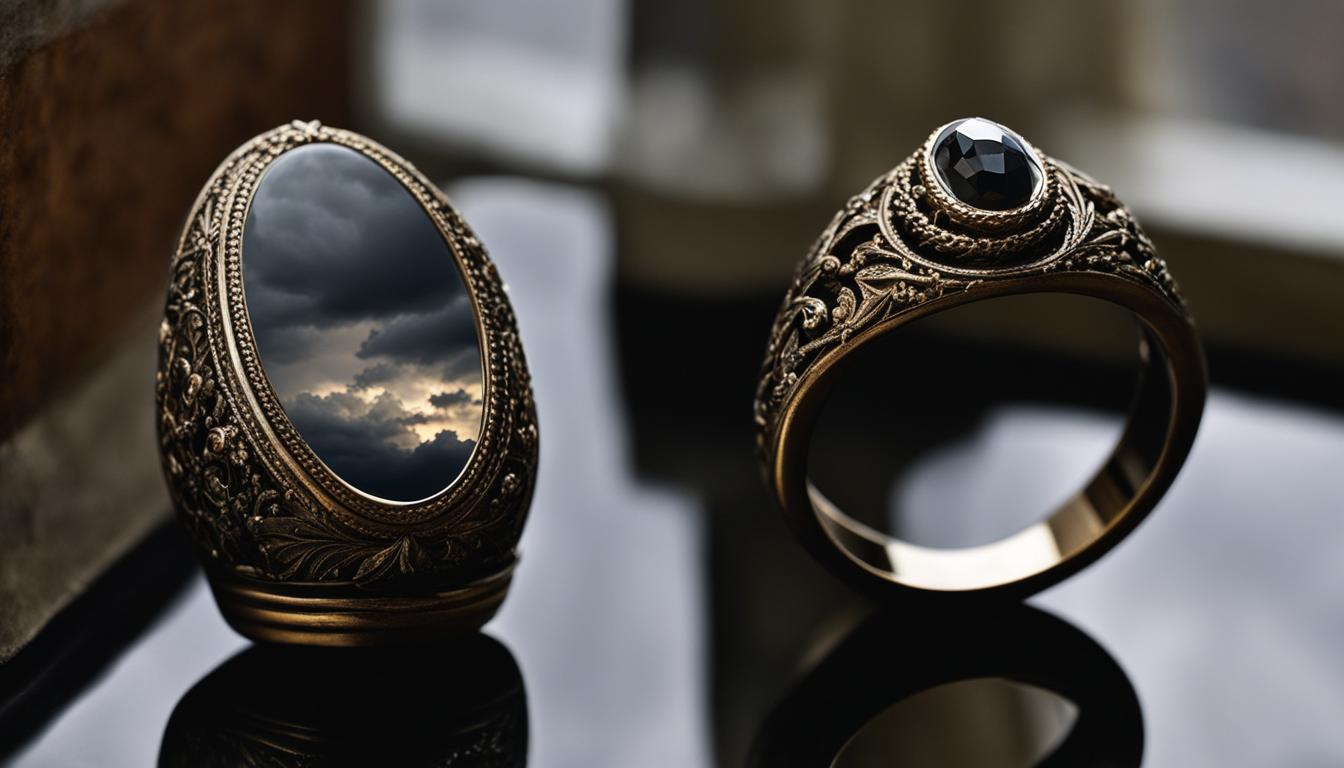Originally posted on November 18, 2023 @ 5:24 am
Wearing your grandmother’s wedding ring can be a beautiful way to honor her and keep her memory alive. However, some may wonder if there is any truth to the superstition that it could bring bad luck. In this article, we’ll explore the cultural beliefs, symbolism, and personal significance behind family heirlooms, particularly wedding rings, to help you make an informed decision.
Key Takeaways
- Wearing a grandmother’s wedding ring can be a way to honor family heritage and keep loved ones close to your heart.
- Cultural beliefs and superstitions surrounding family heirlooms, including wedding rings, vary throughout different cultures.
- Wedding rings are universally recognized as a symbol of love, commitment, and unity.
- Ultimately, the decision to wear or not to wear a family heirloom is a personal one, depending on individual beliefs and choices.
- If you choose to wear your grandmother’s wedding ring, it’s important to properly care for and maintain it to ensure its longevity.
The Symbolism of Wedding Rings
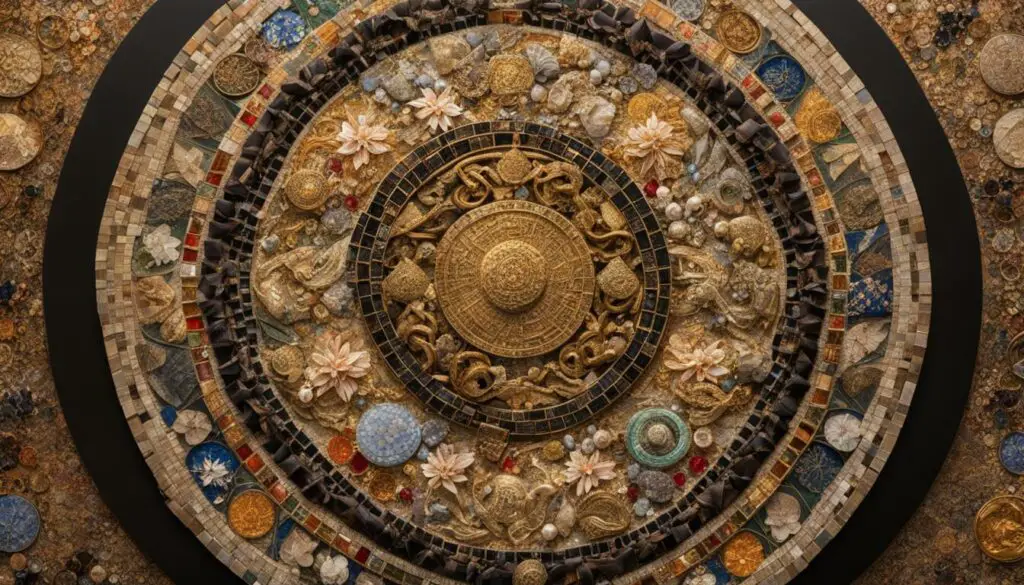
Before we delve into the debate of whether it is bad luck to wear your grandmother’s wedding ring, let’s first explore the universal symbolic meaning behind wedding rings. For centuries, wedding rings have represented the eternal bond between two people, a sign of love, commitment, and unity. They are often worn on the ring finger, as it was believed that a vein ran directly from this finger to the heart, signifying the intimate and emotional connection that the ring represents.
But the symbolism of wedding rings varies across different cultures. In some cultures, the ring is worn on the right hand, while in others, it is the left. In some cultures, wedding rings are a part of a larger set of jewelry worn by a bride, while in others, only the groom wears the ring.
Did you know? In Jewish tradition, the wedding ring is worn on the index finger to symbolize the groom’s power and authority.
Despite cultural variations, the significance of wedding rings in different cultures remains steadfast – they are a symbol of the love and commitment shared between two individuals. And wearing jewelry with sentimental value, like a family heirloom wedding ring, only adds to that special meaning.
Cultural Beliefs and Superstitions
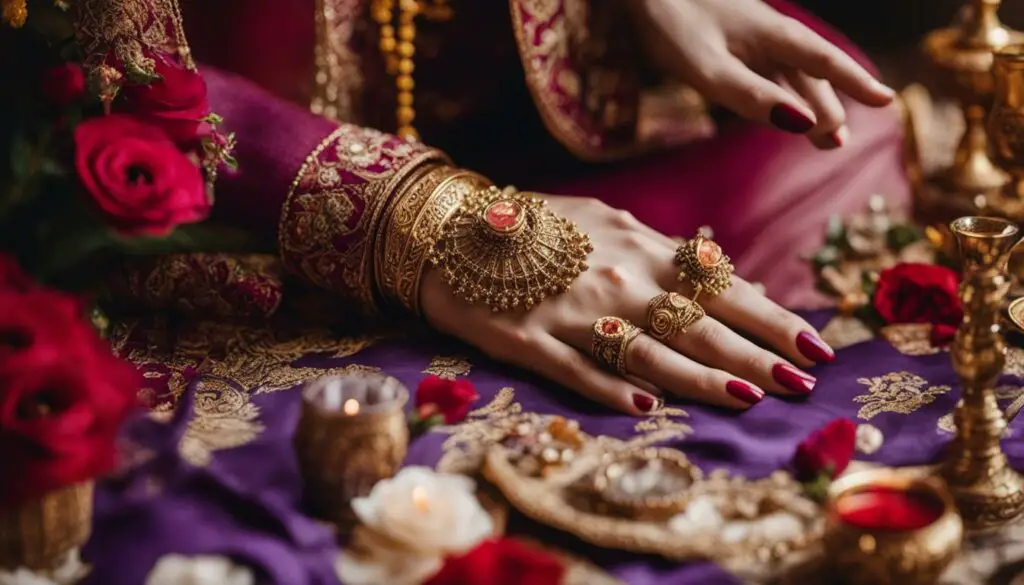
Wearing family heirlooms, such as wedding rings, can carry great sentimental value. However, different cultures have their own beliefs and superstitions surrounding the wearing of these treasures. In some cultures, wearing a grandmother’s wedding ring is believed to bring good luck and blessings to the wearer and their marriage.
On the other hand, some cultures associate wearing family jewelry with bad luck and even death. In Greek folklore, it is believed that wearing a family member’s wedding ring will bring tragedy and misfortune to the wearer. Similarly, in Irish culture, it is considered bad luck for a woman to wear a family member’s wedding ring unless she is the firstborn daughter.
Despite these superstitions, many people still choose to wear their grandmother’s wedding ring as a way to honor their family heritage and keep their loved ones close to their hearts. It is a personal choice that varies from person to person and is often influenced by cultural traditions and individual beliefs.
“I wear my grandmother’s wedding ring every day, and I feel like she is always with me. It is a tradition in our family to pass down wedding rings, and it brings me a sense of comfort to know that I am carrying on that legacy.”
Some cultures also have specific customs surrounding when and how to wear family heirlooms. In Chinese culture, for example, it is common to wear a piece of family jewelry on important occasions, such as weddings or Chinese New Year celebrations. This is seen as a way to show respect for one’s ancestors and honor their memory.
| Culture | Beliefs |
|---|---|
| Greek | Wearing family wedding rings brings bad luck and tragedy |
| Irish | Women should not wear a family member’s wedding ring unless they are the firstborn daughter |
| Chinese | Wearing family jewelry on important occasions shows respect for ancestors and honors their memory |
Ultimately, the decision to wear a grandmother’s wedding ring depends on personal beliefs and choices. While some may adhere to cultural superstitions, others may see it as a way to keep their family’s legacy alive. Wherever one falls on the spectrum, the cultural significance and sentimental value of wearing family heirlooms cannot be ignored.
The Legacy of Grandmothers
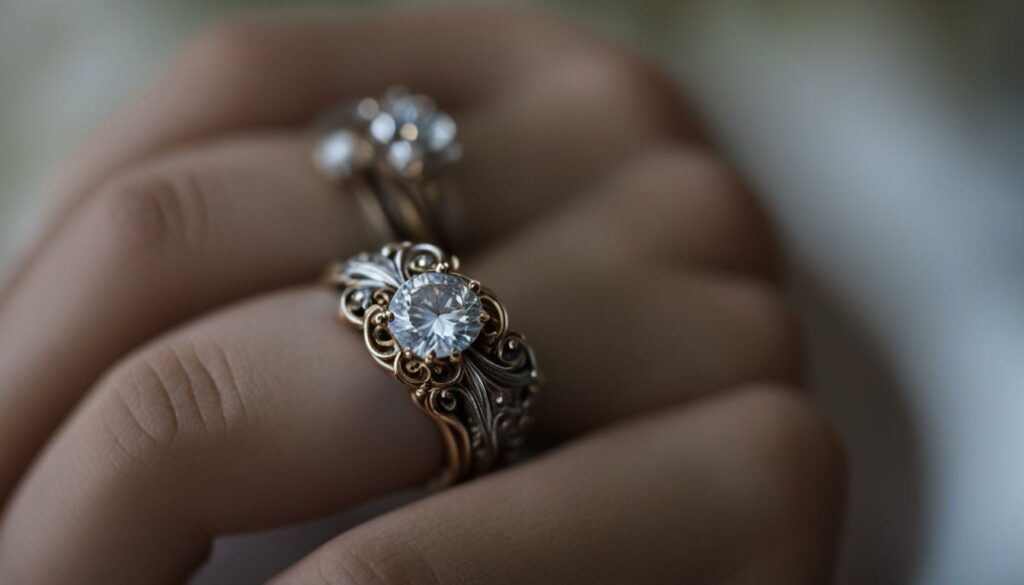
Grandmothers hold a special place in our hearts, and their wedding rings often carry immense sentimental value. Passing down family heirlooms, including wedding rings, is a tradition that has been carried out for centuries. In many cultures, the act of giving a wedding ring is more than just a symbol of love and commitment; it represents the transfer of family heritage and tradition.
Wearing your grandmother’s wedding ring is a way to honor her legacy, her love, and her life. The ring serves as a beautiful reminder of the bond that you share with your grandmother, and the unconditional love that she has shown you throughout your life. For this reason, many people choose to wear their grandmother’s wedding ring on their own special day, as a way to keep their loved one close to their heart and to share in the joy of their marriage.
| Significance of Wedding Rings in Different Cultures | Examples |
|---|---|
| In Indian weddings, wedding rings represent the eternal bond between two people and are worn on the third finger of the left hand, believed to be connected to the heart. | “In Hindu culture, the wedding ring has immense significance. It’s not just a piece of jewelry but a symbolic representation of the unbreakable bond that the couple shares. The ring is worn on the third finger of the left hand, also known as the ‘Vena Amoris’ or vein of love, which is believed to be directly connected to the heart.” |
| In Jewish weddings, wedding rings are exchanged under the chuppah and represent a never-ending circle of love and commitment. | “The wedding ring is a powerful symbol in Jewish tradition, representing the couple’s unbreakable bond and commitment to one another. The ring is traditionally made of gold, and the exchange of rings takes place under the chuppah, symbolizing the home that the couple will build together.” |
| In Japanese weddings, wedding rings are not traditionally exchanged. Instead, the couple exchanges symbolic gifts such as a tsunokakushi (a headdress) and a hakama (a traditional skirt). | “In Japanese culture, the focus of the wedding is not on the exchange of rings, but rather on the ceremonial traditions that symbolize the couple’s commitment to one another. This includes the exchange of symbolic gifts such as a tsunokakushi, a headdress that symbolizes the bride’s intention to become a gentle and obedient wife, and a hakama, a traditional skirt worn by the groom.” |
As we can see from these examples, each culture has its own unique traditions and beliefs surrounding wedding rings. Despite these differences, the one thing that remains constant is the importance of family heritage and the sentimental value that wedding rings carry.
By wearing your grandmother’s wedding ring, you are not only honoring her legacy but also preserving the story and memories that come along with it. The ring becomes a cherished family heirloom that can be passed down to future generations, keeping the spirit of your loved ones alive for years to come.
Debunking Superstitions
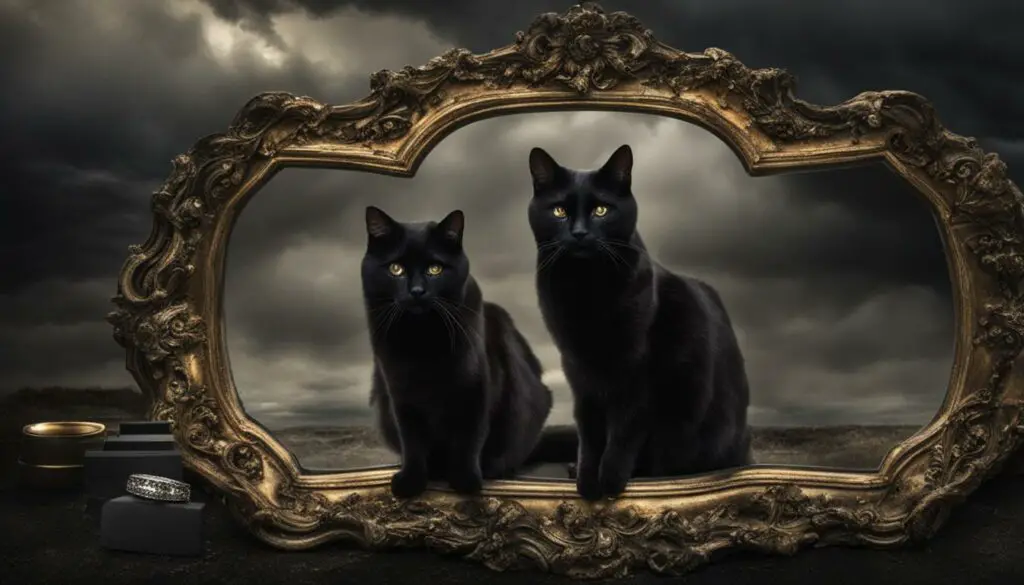
Many people believe that wearing a family member’s wedding ring, especially a grandmother’s, can bring bad luck. However, is there any truth to these superstitions?
“Superstitions are just that – irrational beliefs without any scientific evidence to support them,” says Dr. Elizabeth R. Lombardo, a clinical psychologist and author.
While some believe that wearing a wedding ring from a failed marriage can bring bad luck, others argue that it’s just a symbol and doesn’t hold any supernatural power. In fact, wearing a wedding ring with sentimental value can even bring good luck and positive energy.
It’s important to remember that these superstitions are not universal and vary across cultures and individuals. Ultimately, it’s up to personal beliefs and choices whether to wear a family heirloom or not.
So, next time you’re deciding whether or not to wear your grandmother’s wedding ring, consider the emotional significance it holds for you. Don’t let superstitions hold you back from embracing your family’s heritage and the cherished memories that come with it.
The Power of Heritage
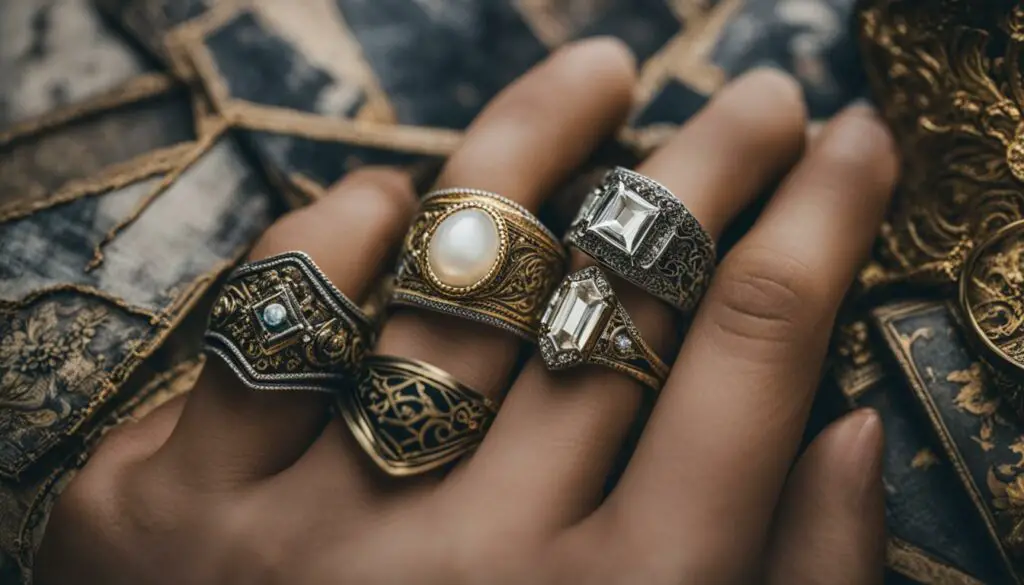
Family heirlooms hold a special place in our hearts, and wearing our grandmother’s wedding ring is a way to honor our family’s heritage and keep our loved ones close to our hearts. This act is not just about jewelry, but a connection to the past and a celebration of our family’s history.
Some cultures place significant value on family heirlooms and view their preservation as a way to keep their ancestors’ legacy alive. In China, for example, jade has been passed down through families for generations as a symbol of prosperity and good fortune. Similarly, in India, jewelry is often viewed as a source of wealth and a symbol of social status, passed down from one generation to the next.
But it’s not just about cultural beliefs. Wearing your grandmother’s wedding ring can also hold personal significance. Perhaps it reminds you of fond memories spent with your grandmother or represents the enduring love between your grandparents. Whatever the reason, it serves as a beautiful testament to the enduring power of love and connection.
By wearing your grandmother’s wedding ring, you’re not just keeping a piece of jewelry alive, but a story and a legacy. It’s a way to pay homage to the traditions and values of your family and an act of respect for the memories and sacrifices that came before you.
Personal Beliefs and Choices
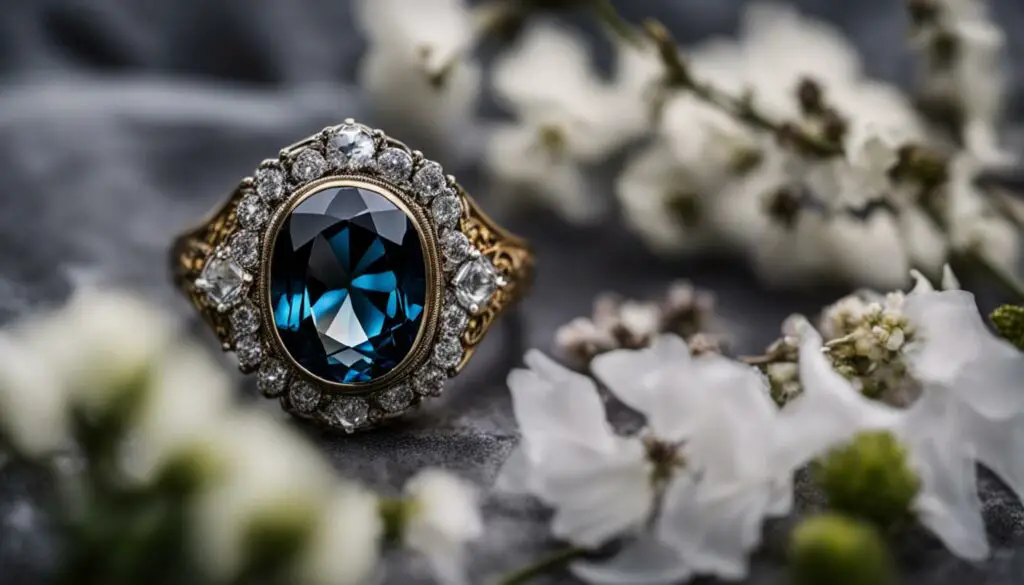
When it comes to wearing a family heirloom like your grandmother’s wedding ring, personal beliefs and choices play a significant role. Some may feel a strong emotional connection to the ring and believe that wearing it brings them closer to their grandmother and family roots. Others may be hesitant due to the superstitions and beliefs surrounding bad luck and the potential consequences of wearing someone else’s wedding ring.
Ultimately, the decision is entirely personal and should be made based on your own beliefs and feelings. If the sentimental value and emotional connection of wearing your grandmother’s wedding ring outweigh any superstitions or concerns, then go for it.
On the other hand, if you feel uncomfortable or uneasy about wearing the ring, there are still ways to honor its significance without actually wearing it. You can display it in a special case, set it in a piece of jewelry of your own design, or even pass it down to someone else in the family who may appreciate it more.
At the end of the day, the choice to wear your grandmother’s wedding ring or not is a personal one that should be made with your heart and mind in agreement.
Cultural Variations in Wedding Traditions
Wedding rings are a universal symbol of love and commitment, but the way they’re worn and presented can vary greatly across different cultures. In some cultures, the groom will give his bride a ring during the engagement, while in others, the bride and groom will exchange rings during the wedding ceremony.
In traditional Indian weddings, for example, couples exchange rings as part of the engagement ceremony, known as the Sagai. The rings are placed on a tray along with other gifts and presented to the couple’s families. The bride and groom then exchange the rings and wear them on their right hands until the wedding ceremony, where they are moved to their left hands.
Similarly, in Jewish weddings, the wedding ring is placed on the index finger instead of the ring finger. This is because the index finger is believed to be the most prominent and powerful finger, representing the importance of the union.
| Country | Ring Exchange Tradition |
|---|---|
| India | Engagement ceremony |
| Mexico | During the wedding ceremony |
| Sweden | None – wedding bands are typically worn without a formal exchange ceremony |
Aside from the timing and presentation of wedding rings, cultural beliefs about wearing family heirlooms can also play a significant role. In some cultures, it is customary for family members to pass down wedding rings as a sign of love and connection. In others, the concept of wearing a family heirloom can be seen as taboo or bring bad luck.
Despite these variations in tradition and belief, the underlying meaning behind wedding rings remains the same: a symbol of love and commitment that transcends cultural boundaries.
The Power of Heritage
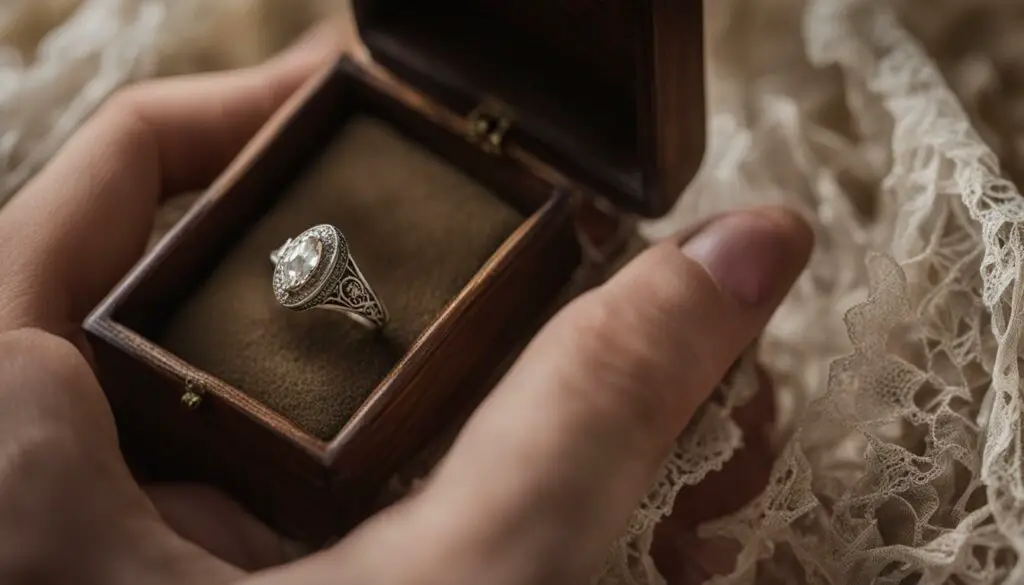
Wearing your grandmother’s wedding ring is not only a beautiful way to honor her memory but also a way to connect with your family’s heritage. The sentimental value of such a piece of jewelry goes beyond its monetary worth, carrying with it the stories, memories, and traditions of your family.
For some, wearing family heirlooms such as wedding rings can evoke a sense of nostalgia and belonging. It can serve as a way to keep your loved ones close to your heart and preserve their legacy. The act of wearing your grandmother’s wedding ring is a testament to the love, commitment, and bond shared by generations of your family.
Furthermore, wearing jewelry with sentimental value can also be a way to show your gratitude and appreciation towards your family. It demonstrates that you value the traditions and history of your family, and that you wish to preserve them for the future generations.
While some may argue against wearing family heirlooms out of fear of damage or loss, it is important to remember that the true value of these pieces lies in the emotional connection they carry. Taking care of your grandmother’s wedding ring and wearing it with pride and love can serve as a way to keep her memory alive and pass down her story to future generations.
Finding Personal Meaning
Wearing your grandmother’s wedding ring can hold immense personal significance and meaning for you. It can serve as a symbol of love, connection, and heritage, representing the bond that you share with your family and loved ones.
Perhaps your grandmother’s wedding ring was passed down to you as a symbol of trust, love, and respect, or maybe it simply reminds you of happy childhood memories spent with your grandmother. Whatever the reason may be, wearing this special piece of jewelry can bring you comfort, joy, and emotional fulfillment.
More broadly, wearing jewelry with sentimental value can provide a sense of grounding and centering. It can serve as a reminder of your values, your identity, and your connection to the world around you. Whether it’s a necklace, a bracelet, or a pair of earrings, wearing a piece of meaningful jewelry can offer a sense of comfort and reassurance in uncertain times.
Ultimately, the decision to wear your grandmother’s wedding ring is a personal one, guided by your own beliefs, values, and emotional attachments. As long as it brings you joy and holds personal meaning, there is no reason not to embrace this cherished family heirloom.
“When I wear my grandmother’s wedding ring, I feel like she is with me. It’s a way to keep her memory alive and honor her legacy.”
Care and Maintenance
If you’ve decided to wear your grandmother’s wedding ring as a symbol of love and connection, it’s essential to take proper care of it to ensure its longevity. Here are some tips to keep your precious jewelry shining and well-preserved:
- Clean it regularly: Over time, your ring can become dull and dirty. You can wipe it with a soft cloth regularly to keep it shining. Avoid using harsh chemicals or abrasive substances that can damage the ring.
- Store it carefully: When you’re not wearing the ring, keep it in a safe and dry place. It’s best to keep it in a soft, padded box to avoid scratches and other damages.
- Get it checked: Take your ring to a jeweler for regular checkups to make sure it’s in good condition. They can also recommend specific cleaning methods and provide any necessary repairs.
By taking good care of your sentimental jewelry, you can ensure that it stays in excellent condition for years to come.
Conclusion
After exploring the various aspects surrounding the question of whether it is bad luck to wear your grandmother’s wedding ring, we’ve seen that personal beliefs, cultural traditions, and individual choices play a significant role.
Ultimately, the decision to wear or not to wear a family heirloom is a personal one, and the sentimental value it holds can often outweigh any superstitions or folklore.
The Emotional Value of Family Heirlooms
Embrace the love, connection, and heritage that wearing a grandmother’s wedding ring can bring, and cherish the unique story it carries with it.
Preserving the Memories of Loved Ones
By wearing and caring for your grandmother’s wedding ring, you can keep the spirit of your loved ones alive and ensure their legacy is passed on to future generations.
Celebrating Cultural Diversity
As we have seen, different cultures have unique wedding customs and beliefs surrounding wedding rings. Embrace the diversity of traditions and practices and celebrate the cultural richness that comes with wearing family heirlooms.
Caring for Your Family Heirlooms
Remember to properly care for and maintain your family heirlooms to preserve their longevity. Regular cleaning and proper storage can ensure these precious pieces of jewelry remain in top condition.
Overall, whether you choose to wear your grandmother’s wedding ring or not, the decision should always be based on what feels right for you. Remember that sentimental value and personal connection trump superstitions and folklore.
FAQ
Is it bad luck to wear your grandmother’s wedding ring?
The belief in whether wearing your grandmother’s wedding ring brings bad luck is subjective and varies from person to person. While some superstitions suggest that it may bring misfortune, others see it as a symbol of love, connection, and heritage. Ultimately, the decision to wear a family heirloom with sentimental value is personal and based on individual beliefs and preferences.
What is the symbolism of wedding rings?
Wedding rings have long been a universal symbol of love, commitment, and unity. They represent the eternal bond between two people and hold great sentimental value. Wearing a wedding ring signifies the promise and dedication shared by couples in their journey of marriage.
What are the cultural beliefs and superstitions surrounding wearing family heirlooms?
Different cultures have their own beliefs and superstitions when it comes to wearing family heirlooms, including wedding rings. These traditions often hold deep significance and vary from culture to culture. Exploring the folklore and cultural traditions associated with wearing family heirlooms can provide insight into the rich tapestry of beliefs surrounding these sentimental pieces of jewelry.
What is the legacy of grandmothers’ wedding rings?
Grandmothers’ wedding rings hold immense sentimental value as they are often passed down through generations. Wearing your grandmother’s wedding ring can serve as a beautiful reminder of the emotional connection and legacy between family members. It brings a sense of honoring the past and carrying forward the stories and memories associated with the ring.
Are there any superstitions debunking the belief of bad luck associated with wedding rings?
While some believe in the superstition that wearing a grandmother’s wedding ring brings bad luck, others argue against this notion. The belief in superstitions is subjective, and individual perspectives differ. It’s up to each person to decide whether to embrace or debunk these myths surrounding the wearing of family heirlooms.
What is the power of heritage associated with wearing a grandmother’s wedding ring?
Wearing a grandmother’s wedding ring is a way for individuals to honor their family’s heritage and keep their loved ones close to their hearts. It represents a deep connection to one’s roots and the continuation of family traditions. Embracing the cultural significance and emotional power of heritage can bring a sense of pride and belonging.
What considerations should be taken into account when deciding whether to wear a grandmother’s wedding ring?
The decision to wear a grandmother’s wedding ring is personal and depends on individual beliefs, cultural background, and personal preferences. It’s important to consider sentimental value, cultural significance, and personal comfort when deciding whether to wear a family heirloom. Each person’s circumstances and feelings towards the ring will influence their decision.
What are the cultural variations in wedding traditions regarding the symbolism of wedding rings?
Different cultures have unique wedding customs and beliefs when it comes to the symbolism of wedding rings. These traditions can vary in terms of design, material, wearing on the left or right hand, and other practices. Exploring the cultural variations adds depth and understanding to the diverse traditions and practices surrounding wedding rings.
How can wearing a grandmother’s wedding ring preserve her legacy?
Wearing a grandmother’s wedding ring is a way to keep her legacy alive and pass on the stories and memories associated with the ring. It serves as a physical representation of her love and commitment, allowing future generations to feel connected to their family history. Through wearing the ring, the spirit and presence of loved ones can be cherished and remembered.
What personal meaning can wearing a grandmother’s wedding ring hold?
Beyond superstitions and cultural beliefs, wearing a grandmother’s wedding ring can hold personal meaning for each individual. It may symbolize the importance of family, the strength of love, or the continuation of a family legacy. The personal significance can vary, but in all cases, it represents a deep emotional connection and a meaningful connection to the past.
How should a grandmother’s wedding ring be cared for and maintained?
If you choose to wear your grandmother’s wedding ring, it’s important to properly care for and maintain it to ensure its longevity. Regular cleaning and inspection by a professional jeweler are recommended to keep the ring in optimal condition. Avoid exposure to harsh chemicals and store the ring in a safe place when not in use.
